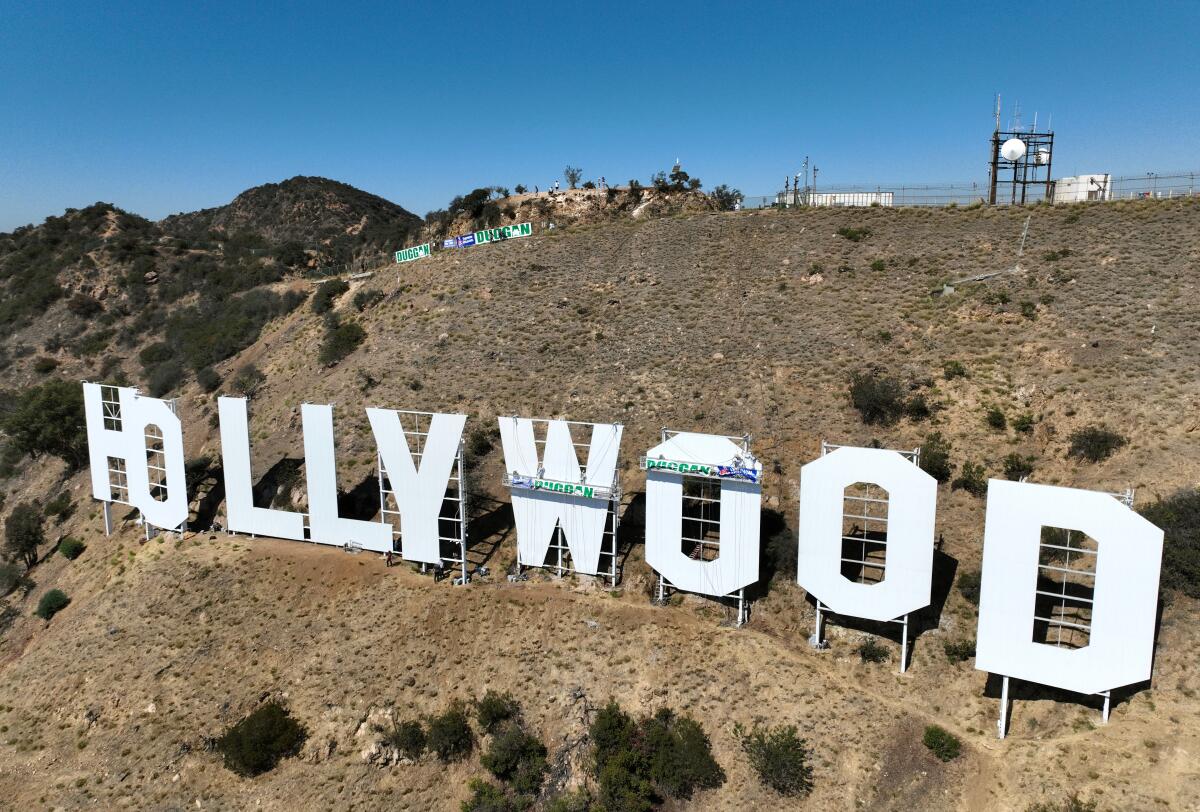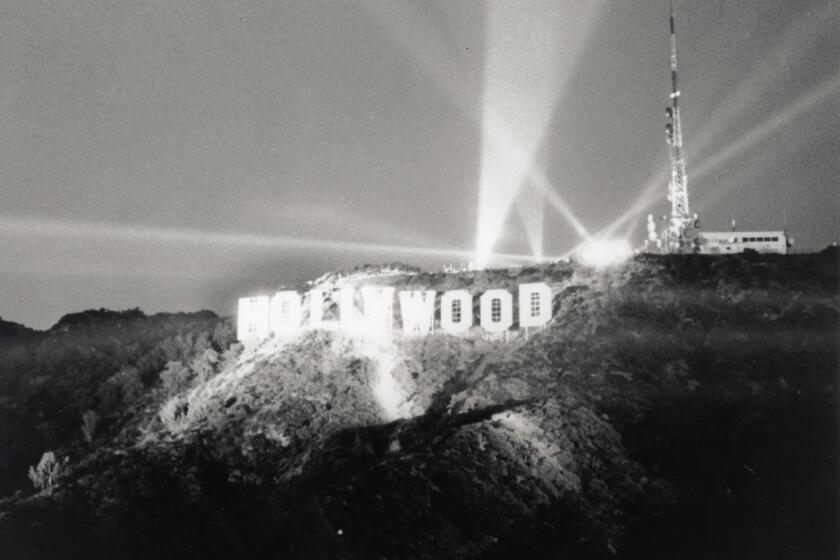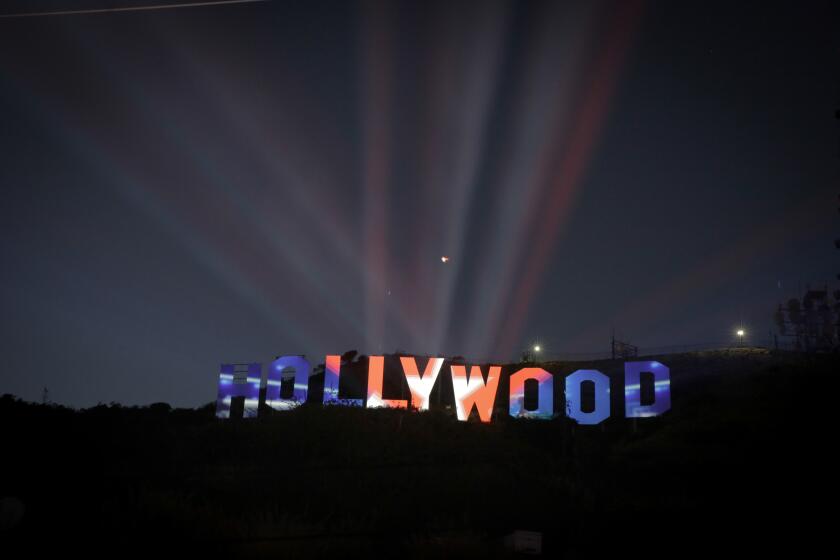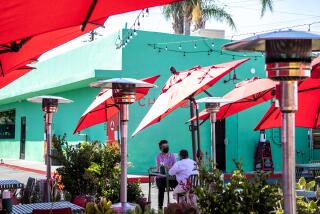Garcetti’s last order as mayor: Light up the Hollywood sign. Bass rescinded it

It may have been the shortest-lived executive directive in Los Angeles City Hall history.
Mayor Eric Garcetti, on his last day in office, quietly signed an executive directive — a regal-sounding action that amounts to an order to city departments — for a program to light up the Hollywood sign.
The prospect of lighting the sign has been contentious for decades, and Garcetti’s order immediately caused an uproar in the hillside neighborhood near the sign.
Mayor Karen Bass killed the order on Wednesday, 10 days after Garcetti issued it. Executive directives take effect 15 days after publication, according to the City Charter.
” I am hereby rescinding Executive Directive No. 36. There is no replacement,” Bass wrote to department heads, according to a copy of the memo that was reviewed by The Times.
Bass spokesperson Zach Seidl said Thursday evening that Bass “rescinded the order because there were concerns about the legality of the order.”
Though the famous sign is not illuminated at night, that hasn’t always been the case.
Garcetti’s directive, issued on Dec. 11, noted the upcoming 100th anniversary of the Hollywood sign, which was originally built as a temporary advertisement for the development of a new subdivision.
The Hollywood Sign Trust, the nonprofit entity that maintains the sign, “has tested new technology” and the tests “have demonstrated how new technologies can focus lights and help reduce the impact of lights on wildlife and ambient light on local residents,” Garcetti’s order said.
“As the centennial of the Hollywood sign approaches in the coming months, it would seem fitting to build on these successful efforts to illuminate our city’s most famous landmark,” the order said.
Garcetti ordered an 18-month pilot program to allow the lighting of the sign. The order stipulates fees associated with the lighting to be paid to the city and states the sign can not be lighted for more than six times a year, for no more than three days per lighting.
Residents have long contended that lighting the sign creates traffic and safety issues, as visitors flock to the area at night to see the illuminated sign, along with potential harm to wildlife.
“We have a residential neighborhood which is 100 years old,” said Sarajane Schwartz, a neighborhood resident and former Hollywoodland Homeowners Assn. president. “Our infrastructure just barely takes care of the needs of the residents here and it has absolutely no tourist or visitor infrastructure.”
Schwartz said neighborhood concerns centered on public safety, specifically fire dangers and narrow, winding streets that are easily made inaccessible by illegally parked cars.
Schwartz enthusiastically praised Bass’ decision, saying, “If you opened a door in our neighborhood [after it was released], I wouldn’t have been surprised if you heard people yelling and screaming with happiness.”
On Tuesday night, the Hollywood United Neighborhood Council held a meeting where Garcetti’s directive was discussed. In an email to members, the Hollywoodland Homeowners Assn. labeled it an “emergency” meeting.
Attorney Doug Carstens, who represents a Hollywood homeowner, sent a letter Wednesday to Bass criticizing Garcetti’s “midnight directive,” which he claimed was a “violation of local and state laws.” He also said that the lighting of the sign would have an adverse effect on wildlife and neighbors, according to the letter, which was reviewed by The Times.
For the first time ever, motion images were projected onto the Hollywood sign Friday night in L.A. Here’s how BET and PaintScaping pulled it off.
“The recent tragic death of mountain lion P-22 illuminates the need to find more and better ways and means to protect and preserve the wildlife in the Hollywood Hills rather than subject them to additional stressors and threats,” Carstens wrote.
Travis Longcore, an urban ecologist at UCLA who studies the environmental effects of artificial light, said this was a situation in which the environmental impact probably should be analyzed before moving forward.
But, he continued, “the general principle is that we want to reduce the amount of light at night in the wildlife areas of the city.”
Jeff Zarrinnam, chair of the Hollywood Sign Trust, told The Times earlier this year that any lighting of the sign “would be a collaborative effort in partnership with the trust, the city, which includes elected officials, the public at large and the Hollywood Chamber of Commerce.”
Reached Thursday, Zarrinnam said he didn’t know why the order was rescinded.
“Now the city may not have a lit sign for the anniversary,” Zarrinnam said. “I would like to know why she rescinded it.”
Garcetti, through a representative, declined to comment.
More to Read
Sign up for Essential California
The most important California stories and recommendations in your inbox every morning.
You may occasionally receive promotional content from the Los Angeles Times.














